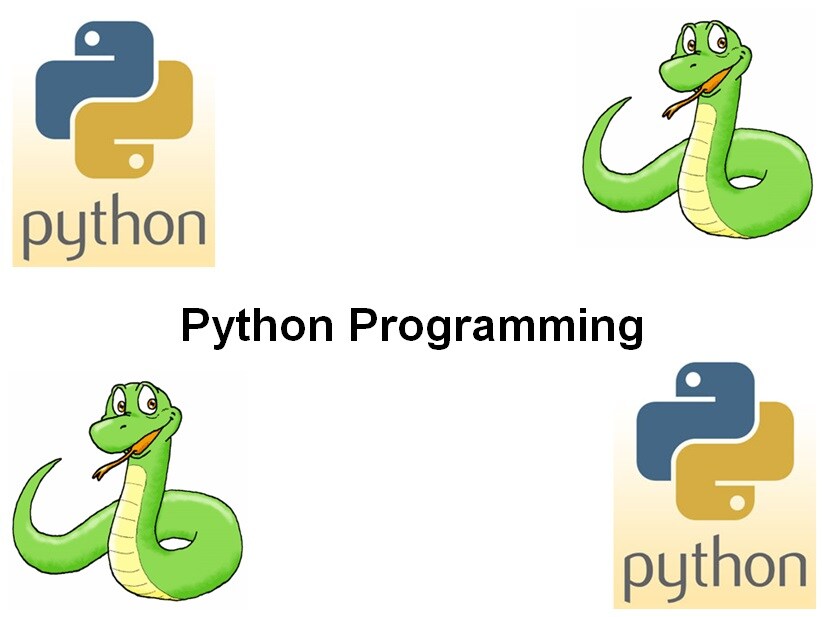- Leren door doen
- Trainers met praktijkervaring
- Klassikale trainingen
- Gedetailleerd cursusmateriaal
- Duidelijke inhoudsbeschrijving
- Maatwerk inhoud mogelijk
- Trainingen die doorgaan
- Kleine groepen
In de cursus Python Programmeren leren de deelnemers te programmeren in de object georiënteerde scripttaal Python. Python is een taal die vaak wordt gebruikt voor data analyse, installatie scripts en prototypes van grote applicaties.
Na een inleiding over de installatie en de verschillende manieren om scripts uit te voeren, worden de basisbegrippen zoals declaraties, variabelen en control flow structures besproken.
Ook wordt aandacht besteed aan de collection structures, zoals Lists, Tuples en Dictionaries. Vervolgens wordt de focus gericht op het gebruik van functies met de verschillende methoden van parameter passing, zoals by value en by reference. Ook de scope van variabelen en lambda functies worden hierbij besproken.
Vervolgens wordt aandacht besteed aan de opdeling van Python software in modules en komt het gebruik van namespaces en packages aan de orde. Comprehensions in Python en functioneel programmeren komen aan de orde evenals de afhandeling van fouten in scripts met behulp van exception handling.
Vervolgens staat de functionaliteit van diverse Python library functies voor het benaderen van files op het programma en wordt aandacht besteed aan database access met de Python Database API.
Ook object georiënteerd programmeren met classes en objects wordt behandeld. In dit opzicht worden concepten als properties, constructors en encapsulation belicht.
Tenslotte wordt als de tijd het toelaat optioneel aandacht besteed aan verschillende libraries voor Reguliere Expressies, unit testing en date and time. De verdieping op deze cursus is de cursus Advanced Python Programmeren.
De cursus Python Programmeren is bedoeld voor developers en systeembeheerders die willen leren programmeren in Python en andere personen die Python code willen begrijpen.
Kennis en ervaring met programmeren is niet strikt noodzakelijk om deel te nemen aan deze cursus. Ervaring in programmeren is wel bevorderlijk voor een goede begripsvorming.
De theorie in de cursus Python Programmeren wordt behandeld aan de hand van presentatie slides. Illustratieve demo's verduidelijken de concepten. De theorie wordt afgewisseld met oefeningen. De cursustijden zijn van 9.30 tot 16.30.
De deelnemers krijgen na het goed doorlopen van de cursus een officieel certificaat Python Programmeren.

Module 1 : Python Intro |
Module 2 : Variables and Types |
Module 3 : Data Structures |
| What is Python? Python Features Getting Started Setting up PATH Environment Variables Running Python Interactive Mode Script Mode Identifiers Reserved Words Lines and Indentation Multi Line Statements Quotes |
Variables Data Types Python Numbers Numerical Types Number Type Conversions Conversion Functions Built-in Number Functions Python Strings String Operations String Formatting Triple Quotes Raw and Unicode Strings Built-in String Functions |
Sequences and Lists Accessing and Updating Lists Multidimensional Lists List Operations List Functions and Methods Tuples Accessing Values in Tuples Tuple Functions Bytes and Byte Arrays Sets and Dictionaries Accessing Values in Dictionaries Properties of Dictionary Keys Dictionary Methods |
Module 4 : Control Flow |
Module 5 : Functions |
Module 6 : Modules |
| Control Flow Constructs if Statement else Statement elif Statement while Loop for Loop break Statement continue Statement Loop with else Combination pass Statement Python Operators Operator Precedence |
Function Syntax Calling Functions Pass by Value Pass by Reference Overwriting References Function Arguments Keyword Arguments Default Arguments Variable Length Arguments Lambda Functions return Statement Scope of Variables |
import Statement from…import Statement Locating Modules Creating and Using Modules dir Function Python Packages Explict Import Modules Implicit Import Modules Namespaces and Scoping globals and locals Functions reload Function Test Harnass |
Module 7 : Comprehensions |
Module 8 : Exceptions |
Module 9 : Python IO |
| Functional Programming Map and Filter Reduce and Lambda List Comprehensions Filtered List Comprehension Syntactic Sugar Dictionary Construction with Zip Dictionary Comprehension Dictionary from Keys Set Comprehension |
Unexpected Errors Typed Exception Handling Exception Handling with Else except Clause Multiple Exceptions Standard Exceptions try-finally Clause Exception Arguments Raising Exceptions Example raising Exceptions User Defined Exceptions |
Input and Output IO Module Opening Files File Open Modes Reading and Writing Binary Files Reading and Writing Text Files File Positions Renaming and Deleting Files Directory Methods Creating Directories |
Module 10 : Database Access |
Module 11 : Python Classes |
Module 12 : Python Libraries |
| Python DB API Using with Inserting Data Prepared Statements Last inserted row id Retrieving Data Fetching Rows Parameterized Queries Transactions |
Object Orientation Creating Classes Class Members Creating and Using Objects Accessing Attributes Property Syntax Built-in Class Attributes Constructors and Destructors Encapsulation |
Regular Expressions match Function Matching versus Searching Search and Replace Unit Testing Unit Test Example Date and Time Handling Time Tuple Calendar Functions |
